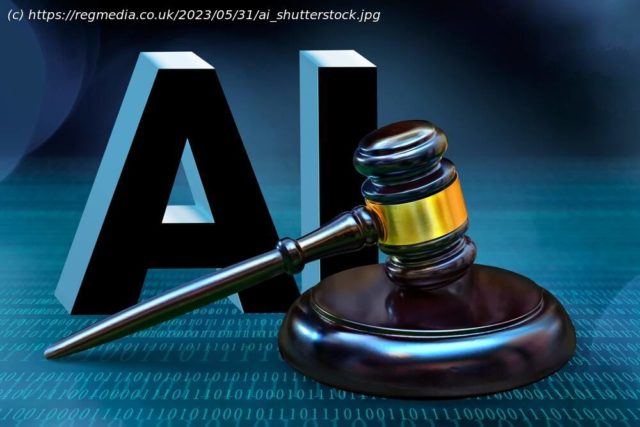If Jesus was my Copilot, what would he do?
Opinion Open source. It’s open. You can look. Mostly, you can use. There’s a clue in the name. Not so fast, claims a class action brought against Microsoft, OpenAI and GitHub. Copilot, an in-IDE AI-powered and open source trained suggestion bot, works by offering lines of code to programmers – and that, the class action suit alleges, breaks the rules, and is being sneaky in trying to hide it. A judge has ruled that some of the claims deserve their day in court. Dear lord, not another copyright battle.
Technology can look very odd to judges. Say you legally purchase an ebook. How do you get it? Routers and caching servers each make copies of the book as it’s delivered, but they haven’t paid a penny. Are the owners of internet infrastructure breaking copyright billions of times a day? You might think that’s a daft question, but it bothered the UK’s Supreme Court enough to go to Europe to ask “Is this Internet actually legal?” Don’t be so bloody daft, came the reply. We miss Europe.
How many of the claims against Microsoft, Copilot and OpenAI’s code prompter will fall into the bloody daft box remains to be seen. Nobody foresaw AI ingesting global databases of open source code when the rules were written. Then again, nobody foresaw search engines doing wholesale ingestion, analysis and presentation of all the content. That certainly has its problems, but the consensus is that it’s too useful and not damaging enough to outlaw. Copilot and other machine learning systems that feed on Internet content are much the same in that respect as search engines. So the question is, is the result not useful enough or too damaging to accept? Where’s the balance of interests?
There are useful ways to approach the issues, and they involve – corporate management look away now – ethics. Yes, really, that briefly fashionable chatter about ethical AI offers a concrete way forward that will work a lot better than lawsuits.
Bent out of shape as it is by special interests, the heart of intellectual property law is that the creator’s reasonable wishes should be respected.
Home
United States
USA — software Whose line is it anyway, GitHub? Innovation, not litigation, should answer






